One year after taking the helm at PTC, CEO Neil Barua reflects on the company’s 40-year legacy and its evolving role in a digitally transforming industrial world. Our chief editor Camille Rustici met him at the Paris Air Show, last week. Barua discusses how PTC is helping manufacturers innovate faster, adapt to labor shortages, embrace AI, and prepare for geopolitical uncertainty.
PTC is renowned for delivering cutting-edge software that drives the design, manufacturing, and servicing of physical products across complex industries such as aerospace, defense, medtech, and industrial equipment.
We have interviewed PTC’s former CEO, Jim Heppelmann, multiple times about digital transformation, the digital thread, and how PTC supports its clients.
Since February last year, the Boston-based company has a new CEO. Neil Barua was previously CEO of ServiceMax, a field service management software company that PTC acquired in early 2023.
We met Neil at PTC’s chalet on Chalet Row during the Paris Air Show, where he shared that under his leadership, the company is intensifying its focus on data integration, AI, and sustainability—key pillars of digital transformation for 2025 and beyond.
You’ve been CEO for over a year now. What’s your vision for PTC moving forward?
Neil Barua: “We just celebrated our 40th anniversary in May, and it was a proud moment reflecting on how we’ve helped customers build the products the world relies on—airplanes, medical devices, industrial equipment. Looking ahead, we’re focused on accelerating product development across the industries we serve, particularly medtech, aerospace and defense, industrial equipment, and high-tech electronics. Those are areas that we believe companies are needing to have product development cycles that are faster with higher quality. Our vision is to help our customers design, engineer, manufacture, and service products faster and with higher quality.”
What’s on PTC’s roadmap for the next 12 months?
Neil Barua: “We’re investing heavily in what we call the Intelligent Product Data Foundation. It’s about integrating our software—like Codebeamer, Windchill, and Creo—so that data flows seamlessly across the entire product lifecycle. This allows our customers to reduce complexity, speed up development, and ultimately apply AI capabilities effectively on top of that connected data.”
Given the widespread labor shortages, how are you adapting your tools to help customers with reduced skilled workforces?
Neil Barua: “Our customers are dealing with multiple issues, one of which is a declining workforce and a workforce that is difficult to replace. At the same time, supply chain issues are even more intense now than during the pandemic, because of everything happening geopolitically. Generative AI has been coming together, and our point of view is to give our customers solutions that allow them to simplify their organizations.
For example, I was with one of the largest industrial equipment manufacturers in the world, and they want to use our capabilities to apply generative AI because they want to feed AI into humanoid robots in their factories—since they can’t find enough people to actually build their equipment. We’re making sure they have the right solutions and a solid data foundation, because the only way you get value from AI is by having a strong, intelligent data foundation. Without that, you can’t apply AI with good outcomes.
We’re also spending time guiding them through change management to make sure these technologies are adopted effectively across their organizations.
Many of our customers have deployed technology globally, but haven’t made it work collectively across their enterprise. We strongly believe that our value and expertise can help customers break down the silos and use data in a much more cohesive way—and ultimately use generative AI to accelerate that, especially given the constraints you mentioned.”
What role do you see PTC playing in the global digital transformation movement?
Neil Barua: “Frankly, we’ve been preparing for this moment for 40 years. Many companies haven’t adopted technology deeply or consistently enough to remain competitive in today’s highly stressed world. Our main strategy is to continue focusing on the strengths we’ve built over four decades and build on that by making our products work better together.
We’re adding a layer of generative AI to accelerate this theme of digital transformation and to support our customers in those efforts. Right now, it’s absolutely critical that our customers adopt technology that enables seamless operations—because they’re navigating an increasingly competitive environment.”
Are you exploring new sectors beyond your current focus?
Neil Barua: “Our strategy is to double down on our core industries. Many customers who use Creo or Windchill are now approaching us for Codebeamer to integrate software development into mechatronic systems. There’s still so much potential in our current markets, We want to keep focusing on that, on helping our clients fully leverage the technology they’ve only just begun to adopt.
How do you plan to stay ahead of the competition as technological change accelerates?
Neil Barua: “We stay ahead by staying focused. We’re not spreading ourselves thin across new markets. We listen closely to our customers—like we’re doing here at the Paris Air Show—and we’re partnering strategically. For example, I was recently in Silicon Valley meeting startups who want to integrate their AI tools with our systems. We’re also expanding partnerships with ERP and CAD providers to ensure open, seamless data flows. That openness is one of our biggest differentiators.”
Will PTC continue its acquisition strategy, or are you focusing more on organic growth?
Neil Barua: “We’ll continue making smart, focused acquisitions. We recently acquired Inquiry Labs in Hungary, which strengthens our ALM capabilities. We’ll keep doing things like that. But right now, our top priority is organic innovation. We’ve built a strong foundation, and we believe we can serve our customers even better by building on that, rather than pursuing major acquisitions in unrelated areas.
I don’t foresee PTC making a large move into a different market, because we’re very confident that the markets we’re already in offer even greater potential for success than in the past.”
What kind of feedback are you getting from customers at this year’s Paris Air Show?
Neil Barua: “European defense is accelerating production for a variety of reasons. Similar to what we’ve seen in the United States, where there’s been a push to clear backlogs, European defense companies are now facing growing backlogs of their own. And that’s exactly where PTC excels—helping our customers ‘burn the backlog,’ as we say.
Clearing those backlogs means you have to move quickly—from design to implementing changes to full-scale manufacturing—as soon as a customer requirement comes in. Many of our customers are struggling with that, and they need tools like the ones PTC offers to move efficiently and at speed.
Another theme I noticed just this morning while walking around is that software is increasingly embedded into mechanical parts of the end product. You might be able to build something quickly, but if it’s not integrated with the software development process, it won’t be ready for production.
That’s why the integration between Codebeamer and Windchill is so critical. From configuration management to mechanical and software alignment, the way those platforms work together is essential to enabling faster, smarter manufacturing.”
Sustainability was a major theme for PTC in previous years. Is that still a priority?
Neil Barua: “Absolutely Especially in Europe, sustainability remains a strong focus. We’re actually investing more in sustainability this year than last. The messaging may have shifted due to the geopolitical climate, especially in the U.S., but the demand for sustainable solutions is still very strong.”
What are the main challenges you see in the European aerospace market right now?
Neil Barua: “The main challenge today is deciding what to prioritize in a world that’s constantly changing—geopolitically, economically, and technologically. CEOs are feeling the strain. I was recently at a leadership conference, and you could really sense the stress around navigating so much uncertainty.
Still, I’m optimistic that in the medium to long term, things will stabilize. My hope is that geopolitical tensions will ease, and that the U.S. and Europe will find more consistency and alignment—particularly around issues like tariffs.
When that happens, I believe technology will play a central role in helping companies adapt, compete, and ultimately thrive.”
And are you optimistic in the long term?
Neil Barua: “ Yes. We’ve seen turbulent times before, and we’ve always emerged stronger. Technology—particularly intelligent, integrated platforms like what PTC offers—will be the backbone of our customers’ resilience and success.”
Will you bring back the LiveWorx event in Boston?
Neil Barua: “I paused LiveWorx after becoming CEO. It was one of the early decisions I made. Customers told us they’d prefer smaller, regional events that are more accessible. It is difficult to go to Boston. It’s expensive to go to Boston. So now we’re doing targeted experiences. For example, next week we’re hosting customers at the Lamborghini factory to see how they use our tech. A larger LiveWorx may return in the future, but for now we’re focused on intimate, high-impact gatherings.”

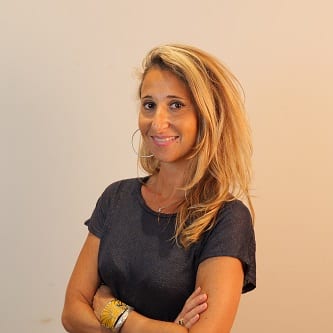
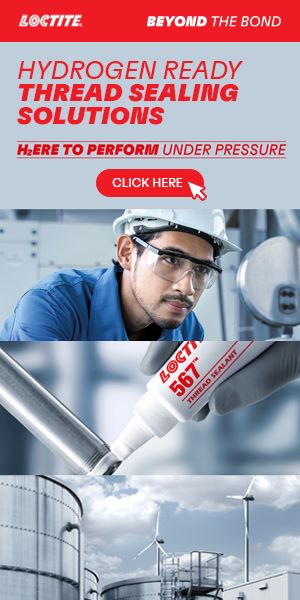
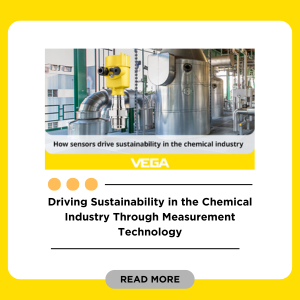

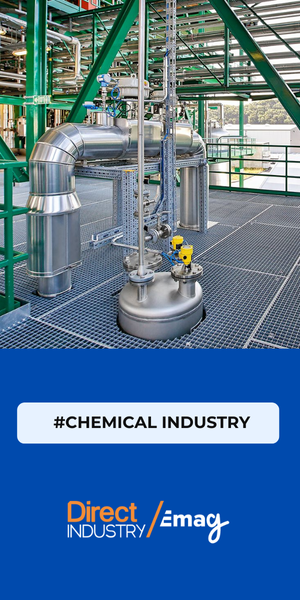
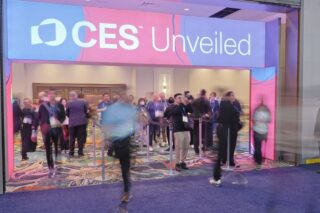
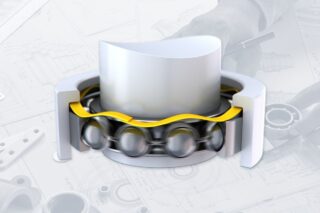


![Image [Best of 2025] Power Moves in the Energy World](/wp-content/uploads/sites/3/energy-320x213.jpg)
![Image [Best of 2025] How Generative AI Is Transforming Industry](/wp-content/uploads/sites/3/AI-4-320x213.jpg)